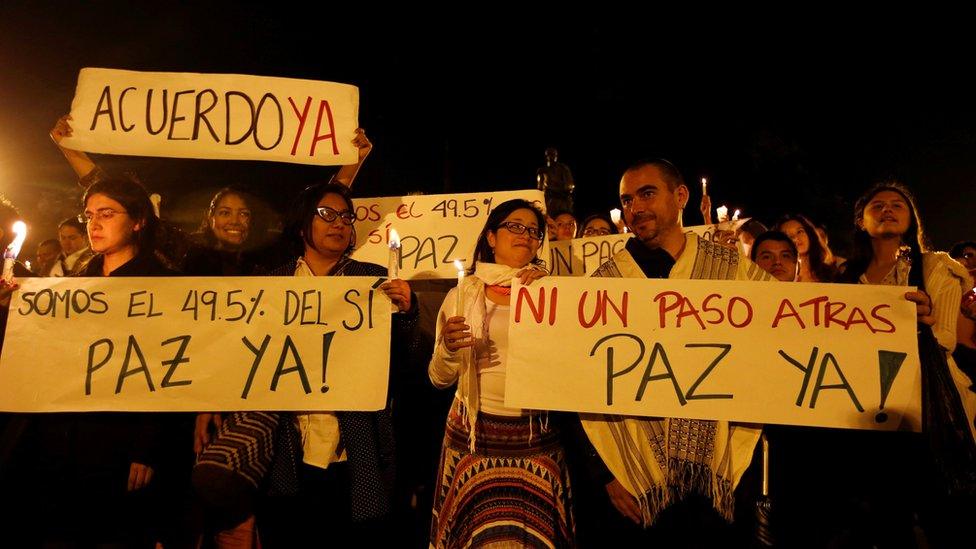Colombia and ELN rebels announce historic peace talks
- Published
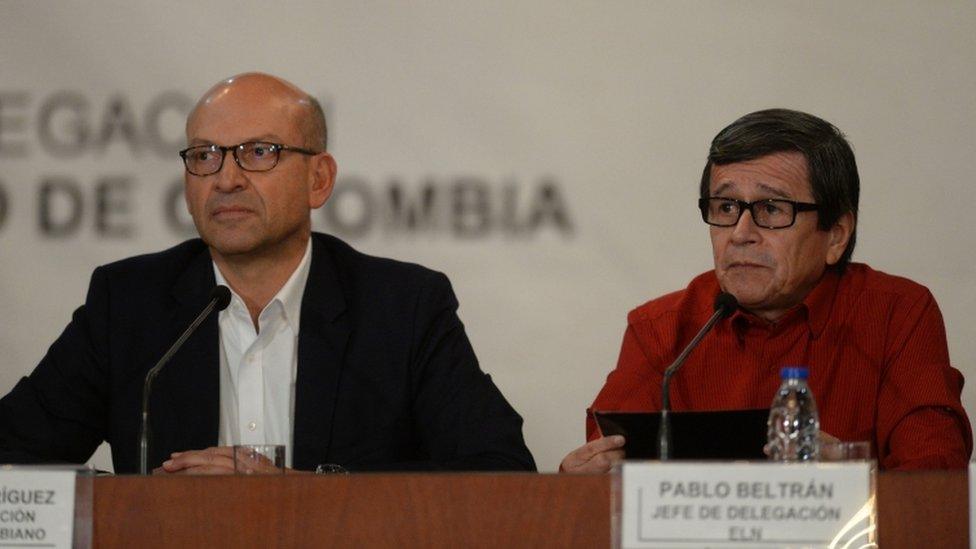
The head of the Colombian government delegation, Mauricio Rodriguez (left) and the ELN delegate Pablo Beltran attended a joint press conference in Caracas
The Colombian government and the country's second largest rebel group, the National Liberation Army (ELN), have announced the beginning of formal peace negotiations later this month.
The talks will be launched in Ecuador's capital, Quito, on 27 October.
President Juan Manuel Santos urged both sides to be realistic in their demands, saying: "Time is the biggest enemy."
Mr Santos is trying to salvage a peace accord with Farc rebels, which was rejected by voters earlier this month.
Informal talks with the ELN began three years ago, he said.
The announcement of an "open phase" in the negotiations was made in Venezuela, which will be one of the guarantors of the process.
The others will be Norway, Cuba, Chile, Brazil and Ecuador.

Analysis by Natalio Cosoy, BBC Colombia correspondent
It was six months ago that the ELN appeared in Caracas, together with government envoys, saying they were ready to begin proper negotiations.
But President Santos said that would not happen until they had freed all the people they held hostage.
The ELN insisted that the issue of the hostages should be part of the actual negotiation.
They seemed to have met each other half way - in the past two weeks the ELN has released three people.
And although they have not freed everyone they have kidnapped, they said they would release two more people before talks begin in Quito on 27 October.

The rebels have made a commitment not to carry out any more kidnappings, Mr Santos said in a recorded televised statement.
They have now freed three hostages in the past two weeks and have agreed to release two others in the next few days.
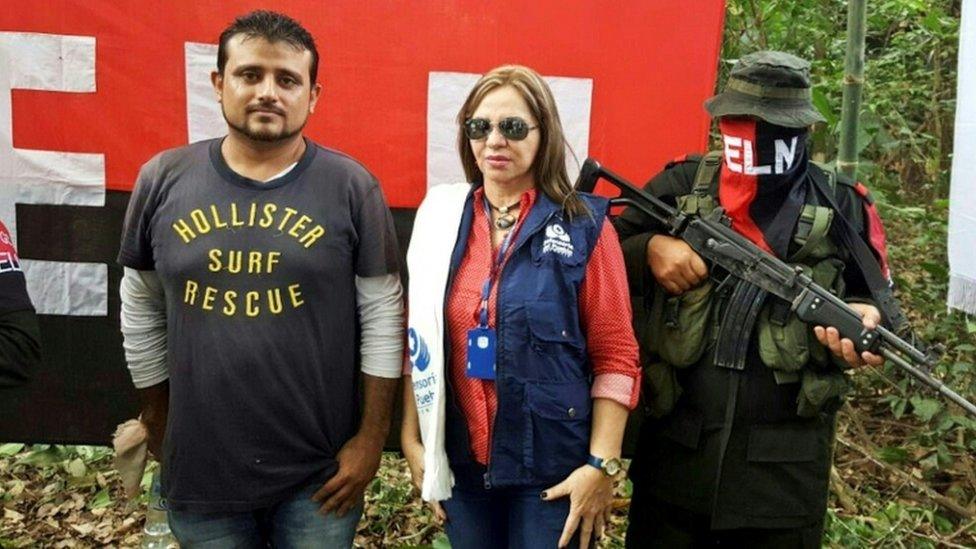
Earlier on Monday the ELN freed its third hostage in two weeks: Nelson Alarcon, a farmer from Arauca province
Earlier on Monday, the ELN freed a hostage in a remote location near the border with Venezuela.
He has been identified as Nelson Alarcon Jarro, a rice producer from the northern province of Arauca, who was kidnapped three months ago.

Who are the ELN rebels?

The group has been fighting the Colombian state for more than five decades
The guerrilla group was founded in 1964 to fight Colombia's unequal distribution of land and riches, inspired by the Cuban revolution of 1959.
Over the decades, the group has attacked large landholders and multinational companies, and repeatedly blown up oil pipelines.
To finance itself it has resorted to extortion, kidnappings and drug trafficking.
It has been strongest in rural areas.

The Farc agreement was rejected by 50.2% voters in a referendum on 2 October.
It had been signed by Mr Santos and the Farc leader, Timoleon Jimenez, better known as Timochenko, a few days earlier, after nearly four years of talks held in Cuba.
On Friday, Mr Santos was awarded the Nobel Peace prize for his efforts to secure a peace deal with the Farc and put an end to 52 years of conflict.
Despite the rejection by voters, Mr Santos vowed to continue with talks with the rebels.
He announced on Sunday that he would donate the money from the Nobel prize ($925,000; £750,000) to the victims of the conflict.
Mr Santos said that issues concerning the Farc peace talks would not be discussed during the ELN conversations.
He hailed the prospect of Colombia enjoying "complete peace" if the country's two largest rebel groups, the Farc and the ELN, reach an agreement to give up their armed struggle.
The ELN has an estimated 2,500 fighters in its ranks, according to El Tiempo newspaper.
- Published29 September 2016
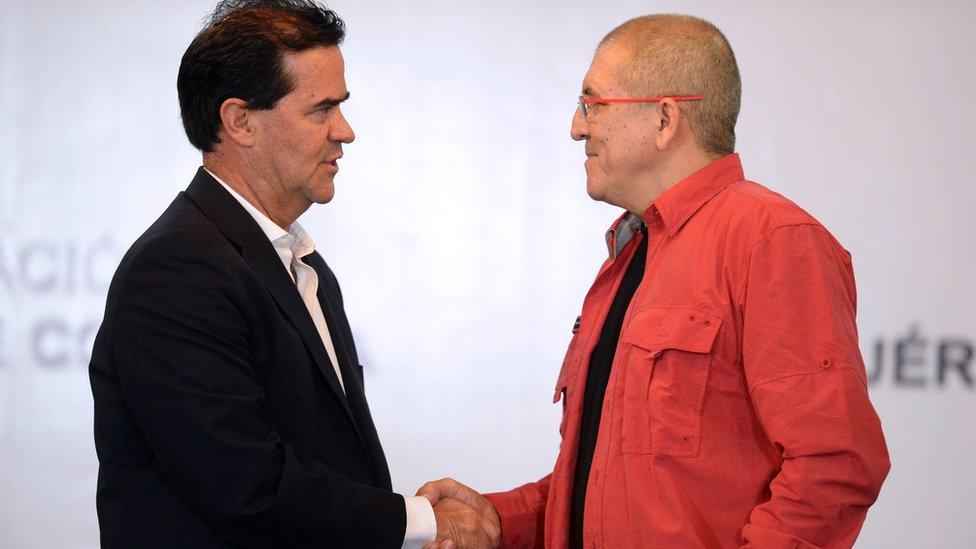
- Published30 March 2016
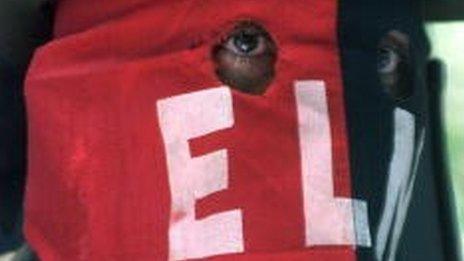
- Published24 November 2016
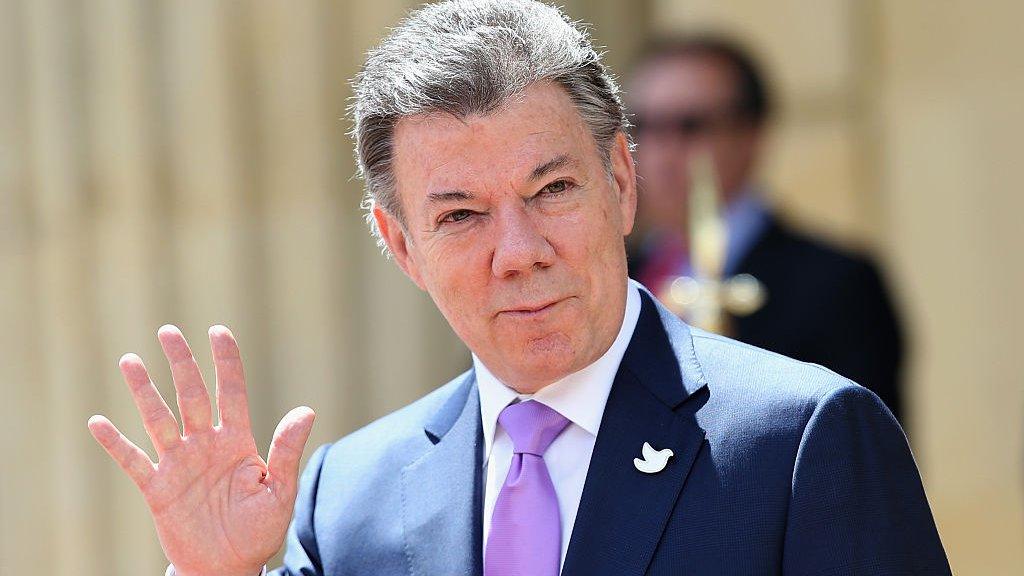
- Published6 October 2016
